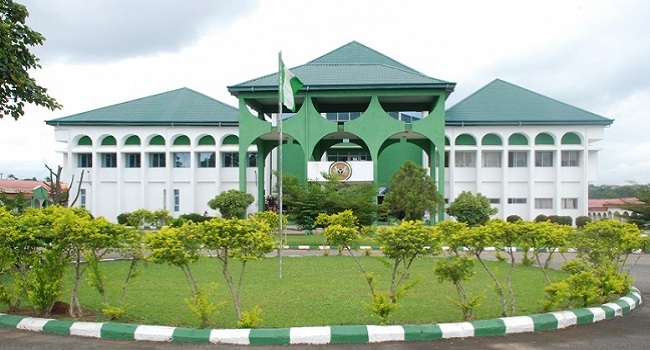
Abia State, with its capital in Umuahia, is one of the 36 states in Nigeria. Located in southeastern Nigeria, this region is rich in cultural heritage and natural resources. Formed in 1991 from part of the former Imo State, Abia has since emerged as a vital player in Nigeria’s economic and cultural landscape. Known by its motto, “God’s Own State,” Abia combines history, natural beauty, and economic significance, making it an essential destination in Nigeria.
Geographical Location and Boundaries:
Abia State Nigeria is bordered by Imo State to the west, Anambra to the north, and Rivers State to the south. This strategic location provides access to key waterways and road networks, facilitating trade and commerce.
Historical Significance of Abia State:
Historically, Abia State Nigeria has been a crucible of resistance and development. From its role in the Aro Confederacy to its significance during the Nigerian Civil War, Abia is a testament to Nigeria’s tumultuous yet resilient in history
Ethnic Composition:
Abia State Nigeria is predominantly inhabited by the Igbo people, a major ethnic group in Nigeria known for their entrepreneurial spirit and rich culture. Minorities of Efik and Ibibio also call Abia home, adding diversity to the population.
Language and Dialects:
The dominant language is Igbo, with various dialects spoken in different regions of the state. English serves as the lingua franca, especially in business and education, while Pidgin English is also widely understood.
Traditions and Cultural Practices:
Cultural practices in Abia State are deeply rooted in tradition. Ceremonies like marriages, title-taking, and age-grade initiations are not only social events but also spiritual and cultural rites that define communal life.
Landscape and Topography:
The terrain of Abia State Nigeria is varied, featuring lush rainforests, rolling hills, and fertile plains. The undulating landscape is a scenic tapestry that offers breathtaking views, especially in rural areas.
Rivers and Waterways:
Abia is blessed with numerous rivers, including the Imo and Aba rivers, which are crucial to both agriculture and transportation. These waterways are not only functional but also add to the aesthetic beauty of the state.
the 17 local government areas in abia state
Abia State, located in the southeastern region of Nigeria, is divided into 17 Local Government Areas (LGAs), each playing a vital role in the state’s administration and development. These LGAs serve as the foundation for local governance, fostering grassroots growth and providing essential services.
1. Aba North: Known for its bustling markets and industrial activities, Aba North is a commercial hub.
2. Aba South: Home to the famous Ariaria International Market, it’s a center for commerce and manufacturing.
3. Arochukwu: Rich in history, this LGA is known for its cultural heritage and tourism.
4. Bende: Famous for agriculture, Bende is a vital area for farming and local produce.
5. Ikwuano: Primarily an agricultural community, known for its vast farmlands.
6. Isiala Ngwa North: A hub for agriculture and rural development.
7. Isiala Ngwa South: This area is recognized for its contribution to agriculture and trade.
8. Isuikwuato: Known for its hilly terrain and educational institutions.
9. Obi Ngwa: A growing area known for its contributions to both commerce and agriculture.
10. Ohafia: Famous for its military history and rich cultural traditions.
11. Osisioma Ngwa: An industrial LGA with growing businesses and manufacturing activities.
12. Ugwunagbo: A rapidly developing area with emphasis on agriculture and trade.
13. Ukwa East: Known for its oil and gas resources, contributing to Nigeria’s energy sector.
14. Ukwa West: Rich in natural resources, particularly oil, and an area of strategic importance.
15. Umuahia North: The state capital, home to government institutions and cultural landmarks.
16. Umuahia South: Surrounding the capital, this area is known for its residential and farming communities.
17. Umunneochi: A rural area with rich agricultural potential and beautiful landscapes.
Each LGA contributes uniquely to the overall development of Abia State, reflecting the diversity and potential of the region.
Major Cities in Abia State
Umuahia: The Capital City
Umuahia, the state capital, is a quiet administrative center with historical and political importance. Known for its peaceful ambiance, it houses key governmental institutions and educational establishments.
 Aba: The Commercial Hub
Aba: The Commercial Hub
Aba, famed for its entrepreneurial spirit, is a bustling metropolis renowned for its markets and industries. It is the industrial heartbeat of southeastern Nigeria, where craftsmanship thrives in sectors like textiles, footwear, and leatherwork.
Other Prominent Towns and Cities:
Other important towns include Arochukwu, Isuikwuato, and Ohafia, each with its own distinct identity, history, and contribution to the state’s culture and economy.
Historical Landmarks
The National War Museum:
The National War Museum in Umuahia preserves Nigeria’s military history, particularly the Biafran War, and is one of the notable historical sites in Nigeria. The artifacts and exhibits provide insight into one of the country’s most defining conflicts.
 Arochukwu Long Juju Shrine:
Arochukwu Long Juju Shrine:
The Arochukwu Long Juju Shrine is a historical and spiritual site. This ancient oracle played a key role in the slave trade, and today, it remains a reminder of the complex history of the Aro people.
Nkporo Slave Route:
Nkporo’s ancient slave route is another significant landmark, offering a sobering glimpse into Abia’s role in the transatlantic slave trade. This historical trail still holds the echoes of a painful past.
Cultural Festivals
The New Yam Festival:
One of the most significant festivals in Abia, the New Yam Festival, celebrates the harvest and the yam, a staple food. It is marked by traditional dances, music, and communal feasting.
Ekpe Cultural Dance Festival:
The Ekpe Cultural Dance Festival is a vibrant display of the state’s traditional music and dance. With participants donning elaborate costumes, this festival is a colorful celebration of identity and heritage.
Oji Ezere Cultural Festival:
Oji Ezere is another cultural event that reinforces unity among Abians. It involves masquerades, traditional music, and dance, symbolizing the collective spirit of the people.
Abia’s Contribution to Nigeria’s Economy
The Industrial Powerhouse of Aba:
Aba stands out as the industrial engine of Abia, producing everything from garments to leather goods. Its bustling markets are a testament to the city’s robust commercial activity, often referred to as the “Japan of Africa.”
Agriculture and Rural Development:
Agriculture is a major contributor to the economy, with crops like cassava, palm oil, and yams forming the backbone of rural livelihoods. Farming is primarily subsistence, though recent government policies are encouraging commercial farming.
Oil and Gas Industry:
Abia is also an oil-producing state, with significant contributions to Nigeria’s energy sector. The extraction of crude oil and natural gas provides employment and revenue, though challenges remain in maximizing this potential.
The Educational System in Abia State
Major Universities and Institutions:
Abia State is home to several universities, including Abia State University and Michael Okpara University of Agriculture. These institutions play a vital role in educating the youth and driving research in various fields.
Educational Achievement:
Abia’s students have consistently performed well in national exams, with the state often ranking high in academic performance. This is a testament to the strong emphasis placed on education by both the government and families.
Challenges Facing the Educational Sector:
Despite these successes, challenges such as inadequate infrastructure, teacher shortages, and limited access to quality education in rural areas remain pressing issues for the state’s educational system.
Traditional Cuisine of Abia State
Popular Dishes:
Abia boasts a rich culinary heritage, with dishes like Ukazi soup, Abacha (African salad), and Ofe Owerri (Owerri soup) among the local favorites. These meals reflect the state’s agricultural abundance and traditional cooking methods.
Traditional Methods of Cooking:
Most traditional dishes are prepared using open-fire methods, with indigenous ingredients and spices that lend a unique flavor profile to the cuisine. The slow-cooking techniques help to extract deep, rich flavors.
Influence of Food on Culture:
Food in Abia goes beyond sustenance—it is a vital part of communal celebrations and religious rituals. Meals are often shared in large groups, reflecting the collectivist nature of Abian society.
Art and Craftsmanship in Abia
Aba Made: The Heart of Creativity:
Aba’s artisans are known for their ingenuity, producing high-quality goods that rival imported products. The phrase “Aba made” has come to symbolize resilience and innovation in local manufacturing.
Textile and Leatherworks:
Aba is a key player in Nigeria’s textile and leather industries, with skilled craftsmen producing everything from shoes to bags. This craftsmanship not only sustains local economies but also creates jobs for thousands of people.
Indigenous Craft and Art:
Abia’s indigenous craft is an expression of the people’s culture and history. From beadwork to pottery, these artistic expressions carry deep cultural meaning and are often passed down through generations.
Tourism in Abia State
Must-Visit Tourist Attractions:
Tourist attractions like the Azumini Blue River and the Ojukwu Bunker in Umuahia draw visitors to the state, offering glimpses of both natural beauty and historical significance. These sites are integral to Abia’s tourism industry.
Eco-Tourism in Abia:
Abia’s rich natural environment makes it an ideal location for eco-tourism. Visitors can explore rainforests, rivers, and wildlife reserves that showcase the state’s commitment to preserving its biodiversity.
Efforts to Promote Tourism:
The government and private sector are working to develop Abia’s tourism potential, with new projects aimed at improving infrastructure and promoting the state as a destination for both local and international tourists.
Religion and Beliefs
Religious Diversity in Abia:
Abia is home to a variety of religious beliefs, with Christianity being the most prominent. The state also hosts adherents of traditional religions, making it a melting pot of spiritual diversity.
The Role of Christianity:
Christianity plays a central role in Abia’s society, influencing everything from politics to education. The church is a powerful institution, providing both spiritual and social support to its followers.
Indigenous Religious Practices:
Despite the dominance of Christianity, traditional religious practices persist, particularly in rural areas. These indigenous beliefs, often tied to nature and ancestral worship, remain a vital part of Abia’s cultural identity.
Healthcare in Abia State
Major Hospitals and Health Facilities:
Abia has several major hospitals, including government-owned and private facilities, that provide healthcare services to its citizens. However, access to quality healthcare is still a challenge in rural areas.
Traditional Medicine and Healers:
Traditional medicine remains popular in Abia, with many residents seeking herbal remedies and spiritual healing alongside modern medical treatments. This blend of old and new continues to thrive in the state.
Abia’s Role in Nigerian History
Abia During the Nigerian Civil War:
Abia was a central battleground during the Nigerian Civil War, with Umuahia serving as the capital of the Biafran secessionist state. The war left deep scars on the region, but it also strengthened the resolve of its people.
Key Contributions to National Development:
Abia has made significant contributions to Nigeria’s development, from its industrial prowess to its rich cultural heritage. The state’s impact on both the economy and national identity cannot be overstated.
Historical Movements from Abia State:
Several historical movements, including the anti-colonial struggle and the fight for civil rights, have roots in Abia. The state’s history of resistance and activism continues to inspire future generations.
conclusion
Summary of Abia State’s Importance:
Abia State stands as a testament to Nigeria’s diversity, resilience, and potential. Its rich history, natural beauty, and industrious people make it a unique and valuable part of the nation.
Encouraging Exploration and Investment:
As the state continues to grow and develop, there are countless opportunities for exploration and investment. Whether through tourism, business, or cultural exchange, Abia offers a wealth of experiences for those willing to explore its depths.
Final Thoughts on Abia’s Future:
The future of Abia State is bright, with its rich resources and resilient people poised to overcome challenges and seize new opportunities. The state’s journey, though marked by struggles, is one of hope, growth, and continued progress.
